What makes this Saturday different from any other Saturday? If I look back at Saturdays over the course of my life, what a change I see. How I spent my Saturdays when I was my children’s age is so very different from how they spend they theirs. Better? In a way. Worse? Also true, in a way.
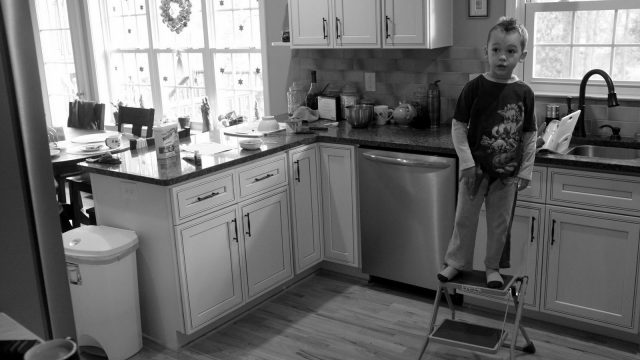
If K were to take the time to look back over the Saturdays of her life and compare them to what her children do, how they spend Saturday, there too would be enormous change. Better? In a way. Worse? Also true, in a way.
The point is, K and I are both in a place in our life that we probably never would have imagined when we were our children’s age. Both of our lives at their age were about waiting, in a sense. K and her family were often waiting in lines in still-Communist Poland; I was waiting for the end and a new beginning.
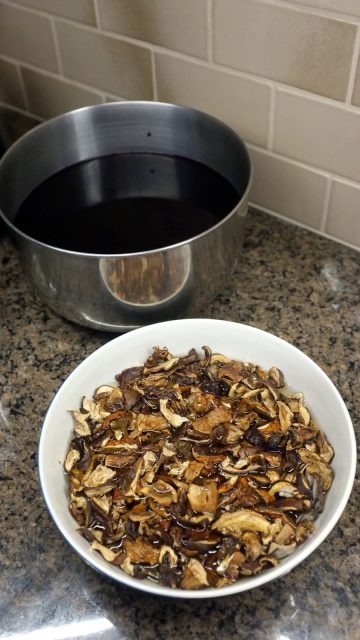
And yet, there’s still the waiting today. It’s part of life. Waiting for the wild mushrooms (picked in Poland, dried in Babcia’s kitchen, smuggled in our checked luggage, and waiting for months in the freezer) thaw then re-hydrate. Waiting for the zakwas to finish its fermenting so we can have the properly sour barszcz for dinner. Waiting for the prunes, apples, oranges, cloves, cardamom pods, cinnamon sticks, ginger cubes, and brandy to release their magic to make the Christmas kompot.
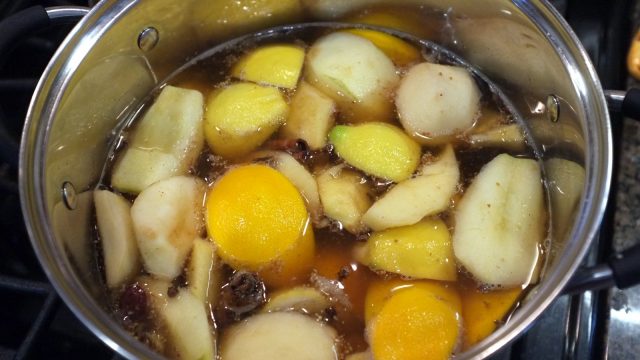
The preparation, the waiting, is itself magical. K keeps everything moving, and I am constantly asking, “What now?” I dice the potatoes for the mushroom soup. “Not too big, not too small.” I hold one cube up.
“They could be a little bigger.” I try again and hold up a cube for inspection.
“That’s a bit too big.” But I don’t mind. I’m just glad that I’ve found a place to help other than taking out the compost again and again — peelings from all the fruits and veggies, then the cooked veggies from the stock, those that won’t go into the salad that is — and cleaning up the house.
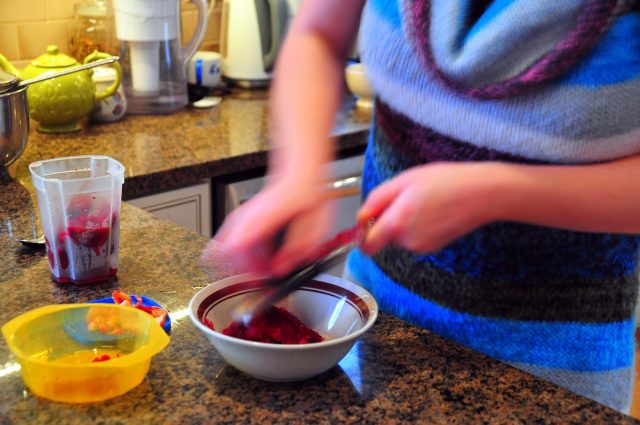
While all this waiting is going on, there are things to do, of course. The table needs to be set. This is one of the things I leave to K. It’s not that I wouldn’t know how to do it — I’m not that bad. But it’s something K enjoys doing, a creative endeavor as I enjoy creating this site.
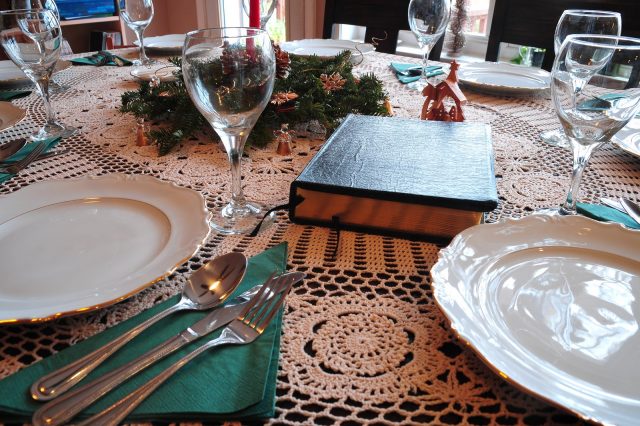
We begin with a Gospel reading and sharing the opłatek. The Boy likes the wafer enough that he just sits and eats it as if it were a snack.
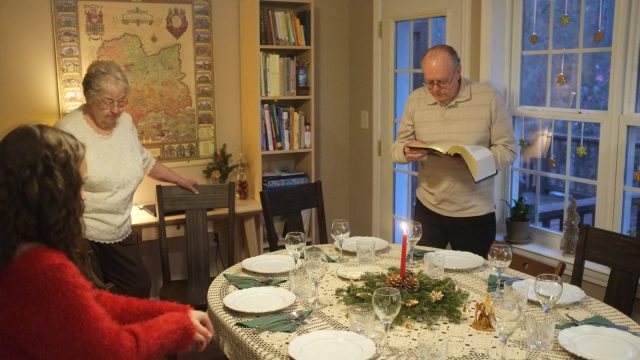
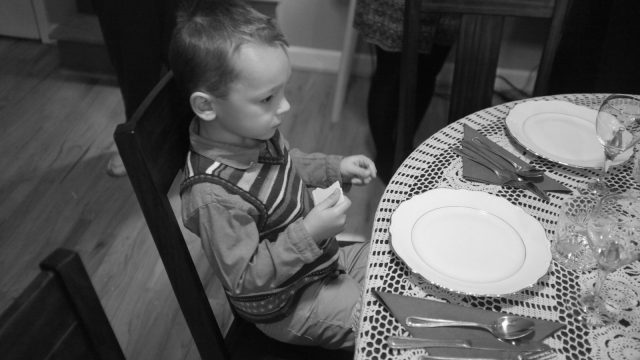
The dinner itself goes by in a flash. No matter how we try to slow things down (which we actually did this year), it still seems to go by entirely too quickly. We putting the barszcz on the table, and suddenly it’s desert time. For the kids, that’s a good thing: they can’t wait to tear into their presents. For K, I guess it’s a little bittersweet.
The menu is a traditional one (mouse-over to see details).
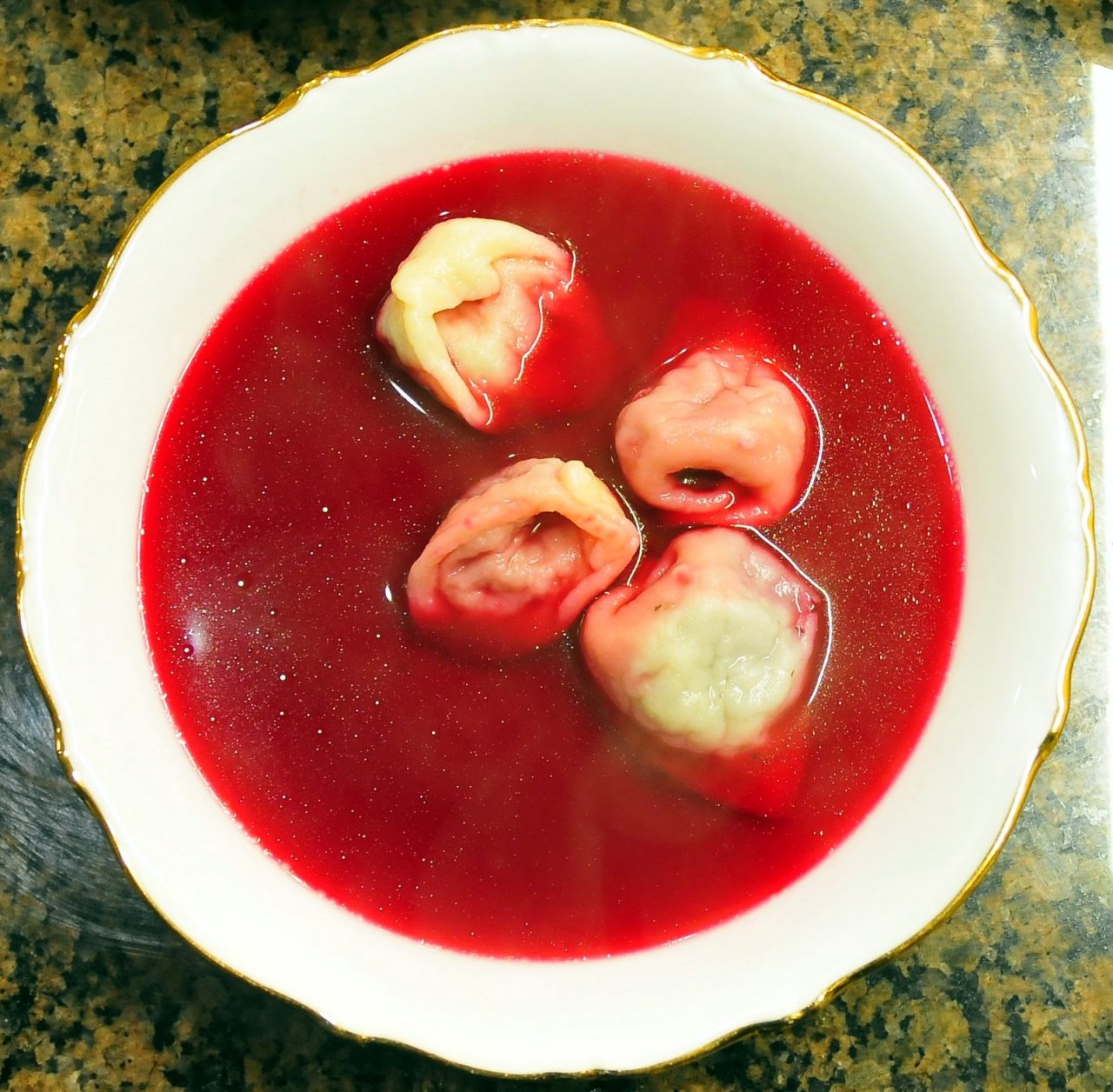
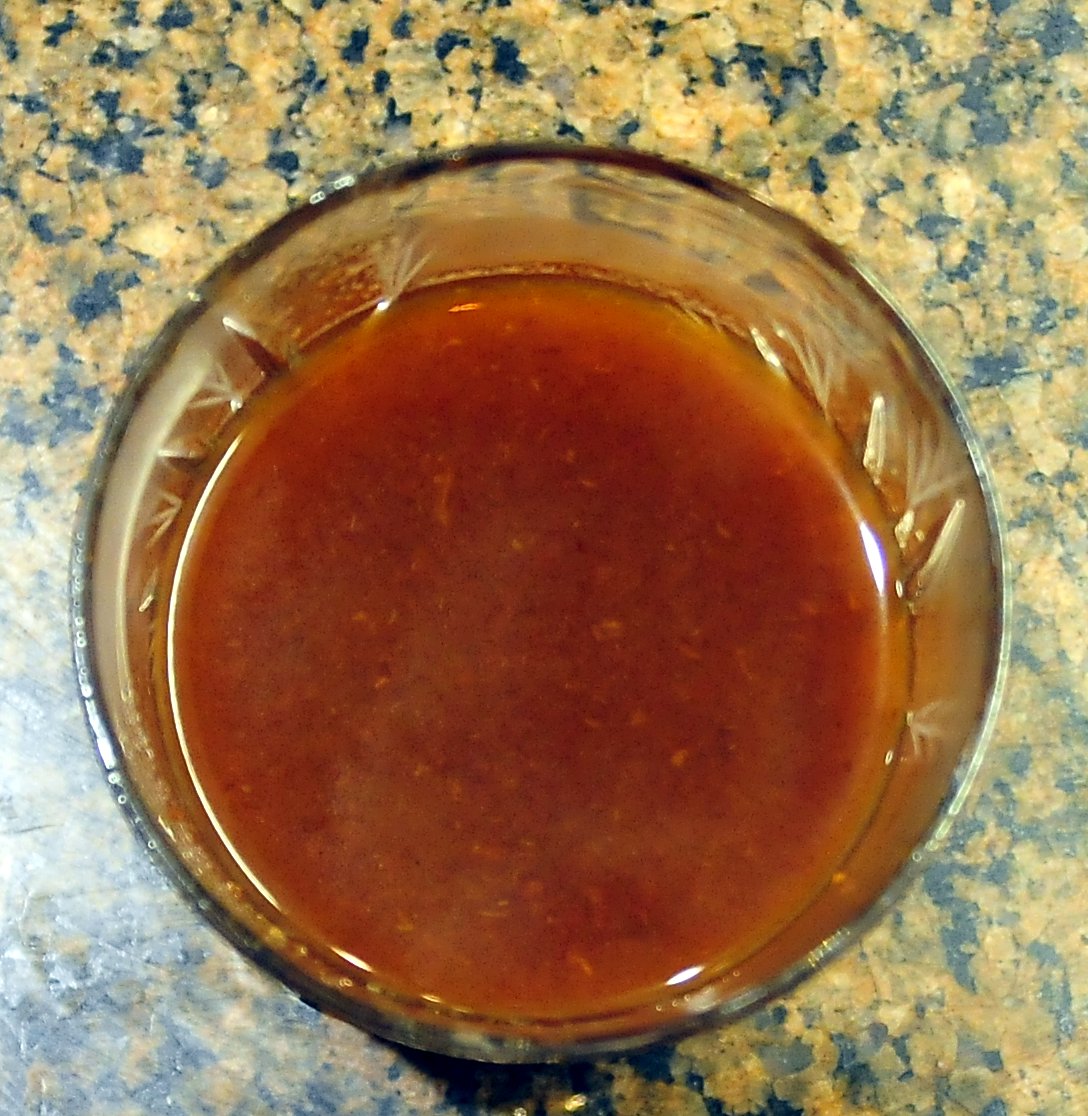
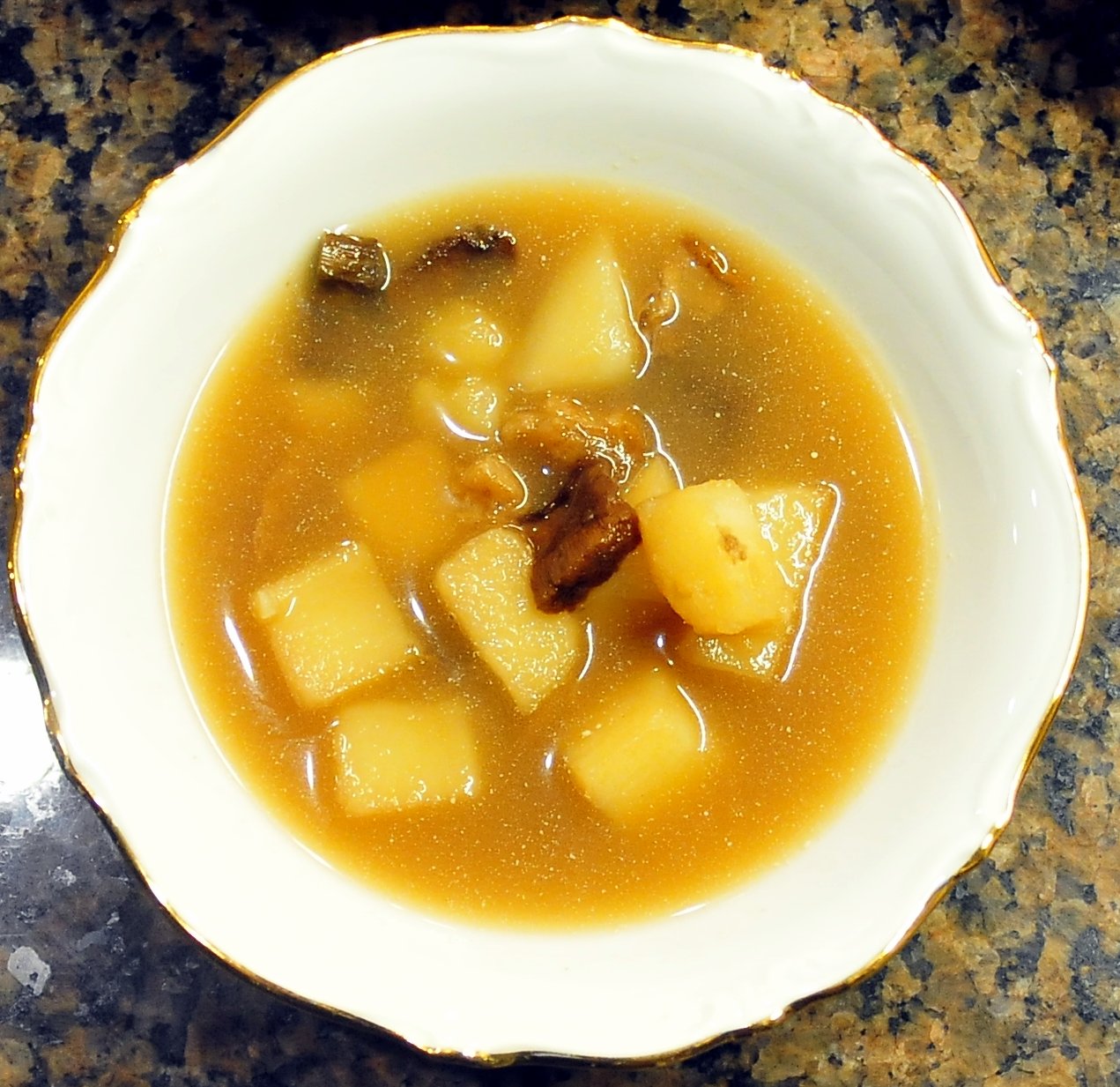
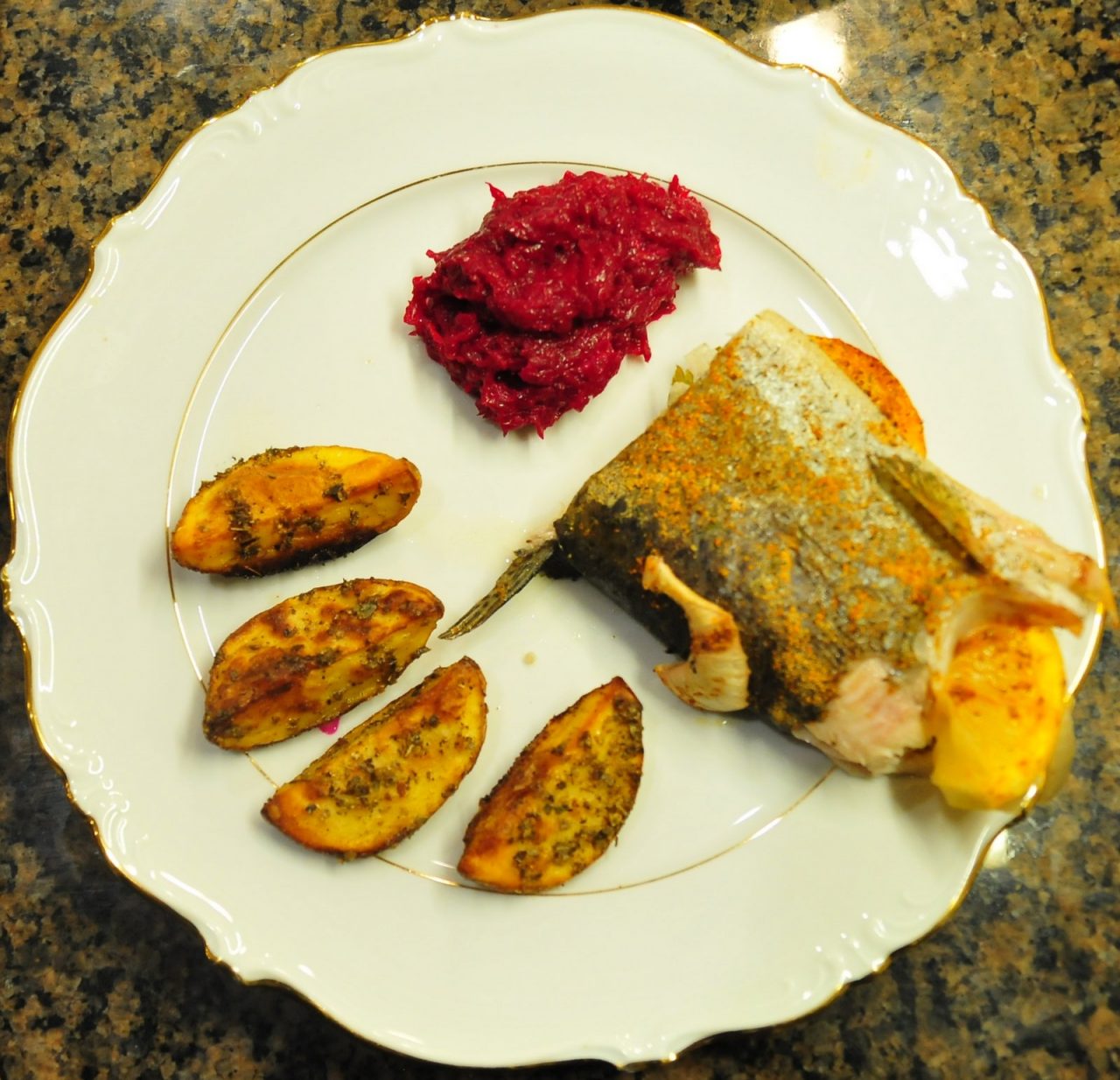
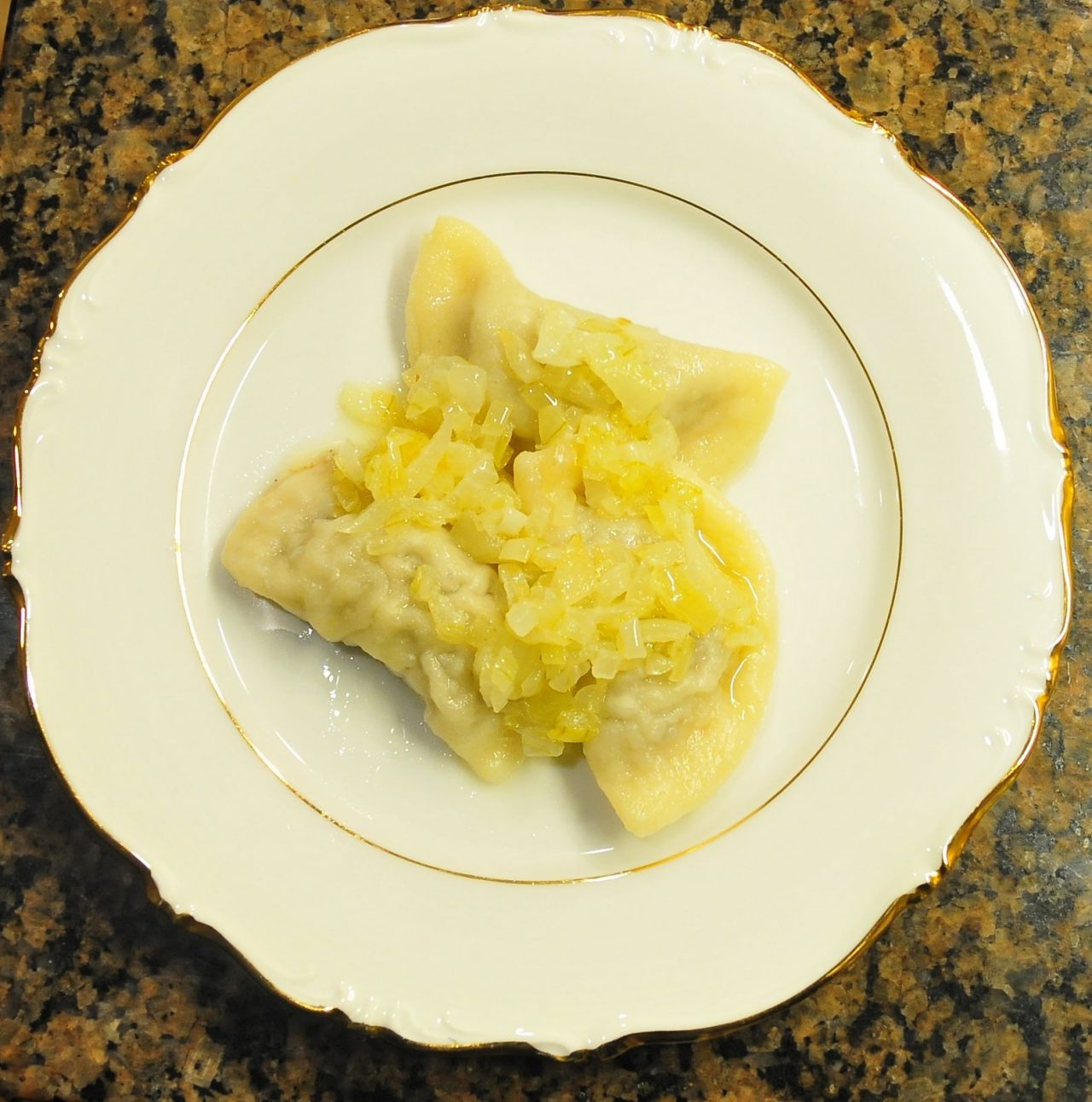
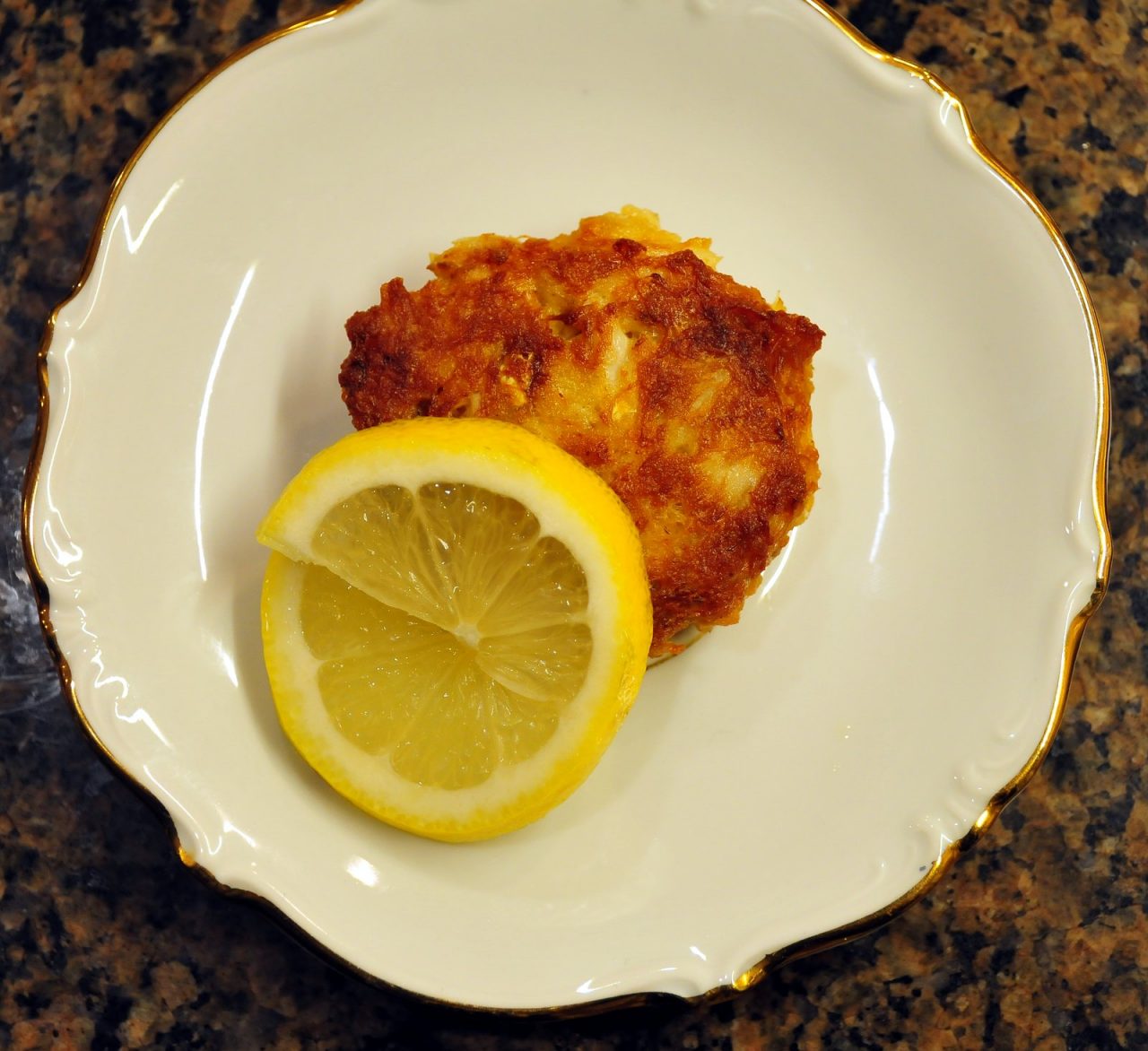
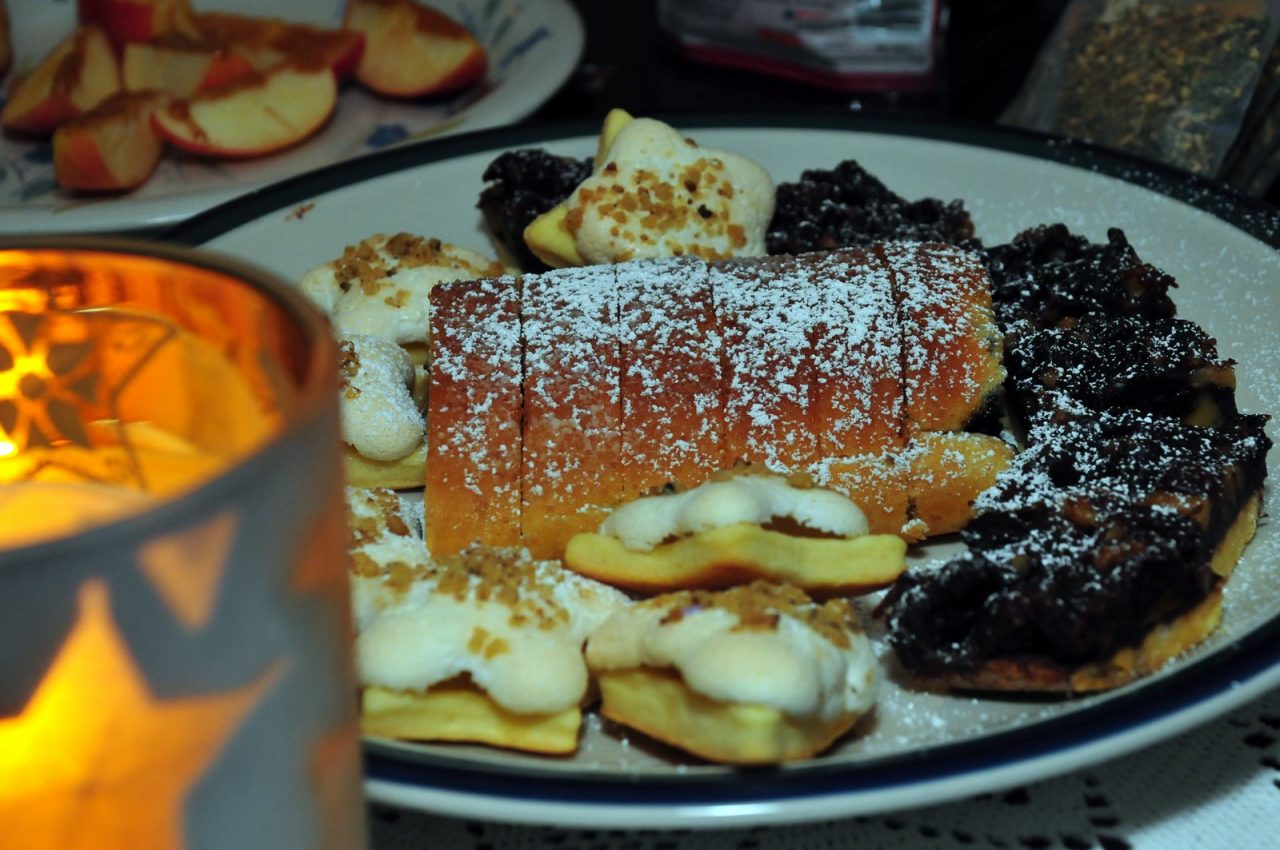
Dinner over, we head to the living room for presents. Probably this is the best part of the day for the kids: they can’t imagine what it’s like to go to bed Christmas Eve without the presents as we do it Polish style — everything opened tonight.
And I guess, truth be told, it’s everyone else’s favorite as well. The gifts we get? Who cares, really, except for one gift: the kids’ joy. The Girl got what she’s been talking about for ages: a bow and arrow set. When she saw one in Kmart the other day (when we went to find something or other for decorating), she was insistent that we buy it. That she buy it.
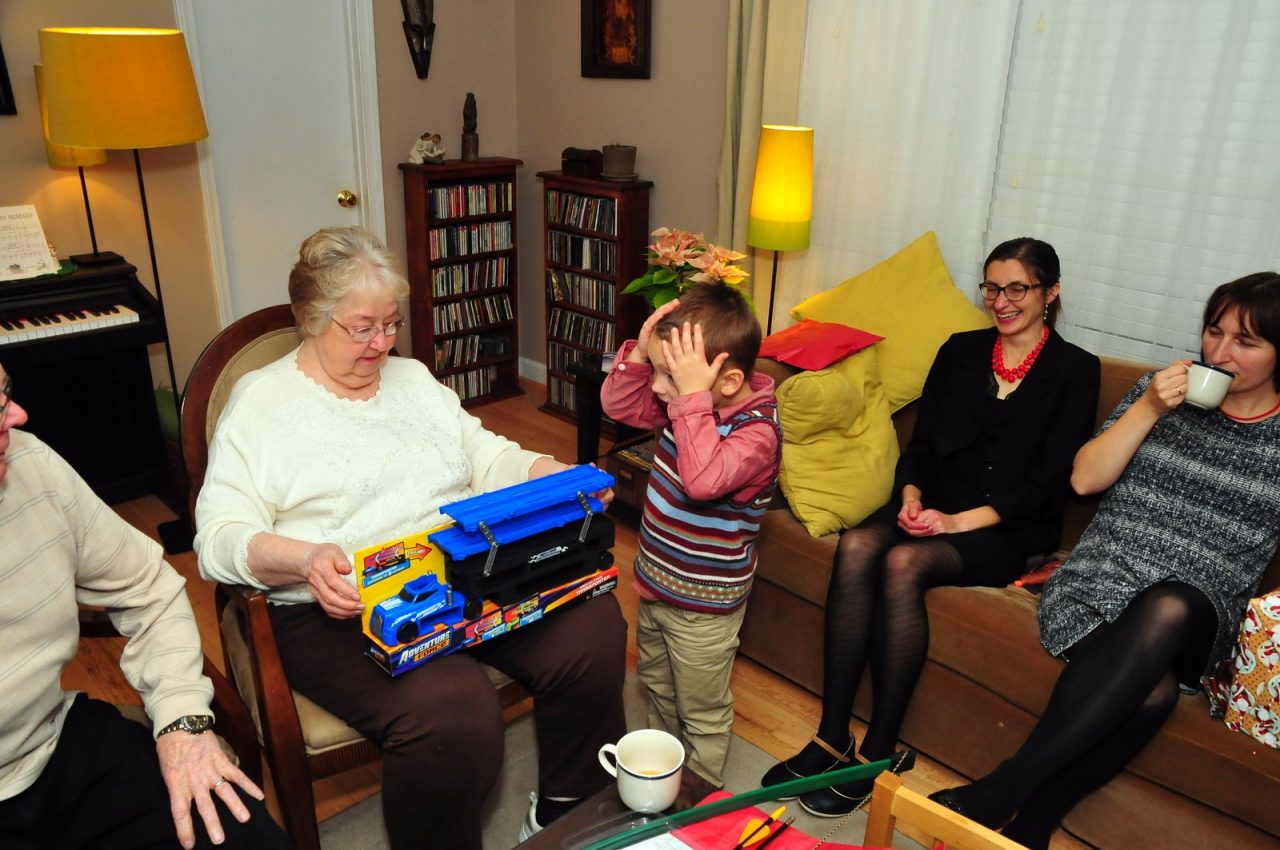
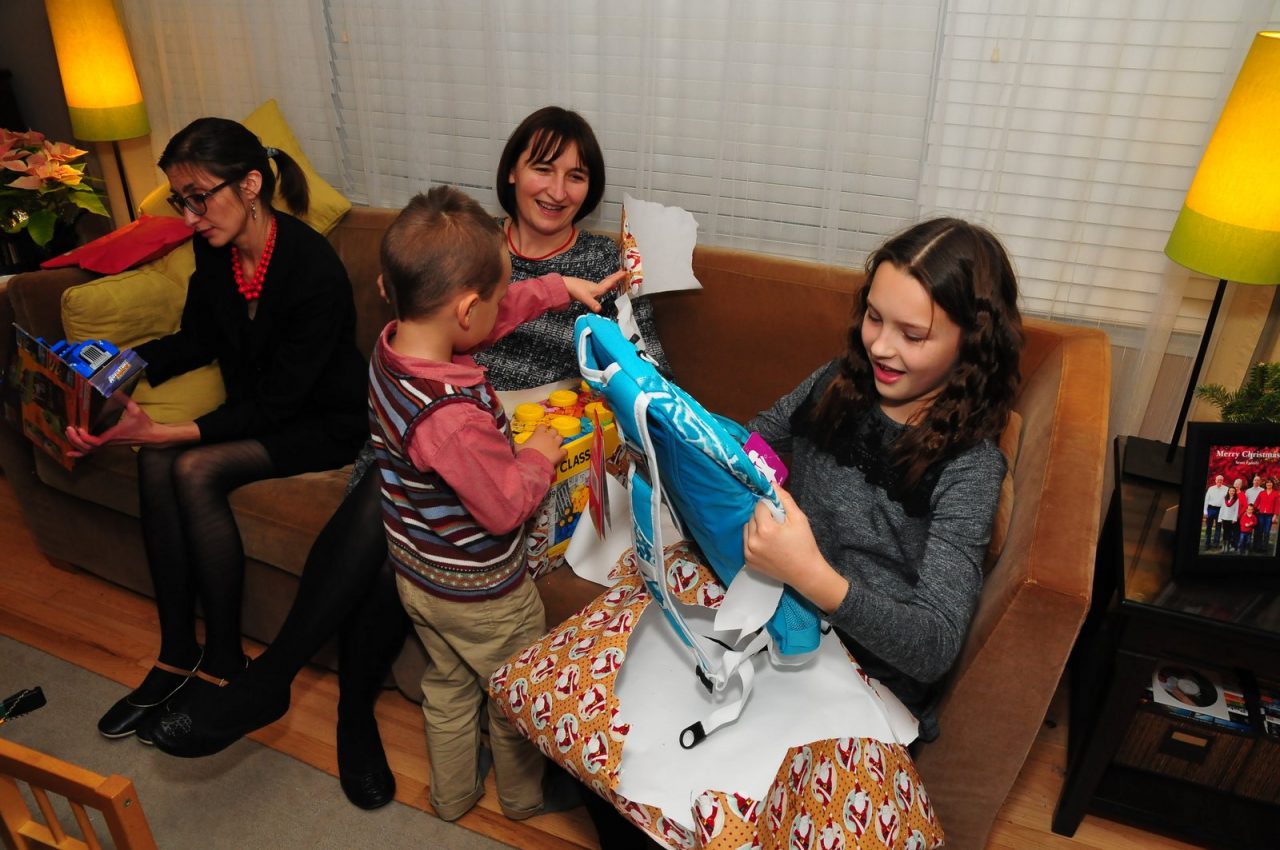
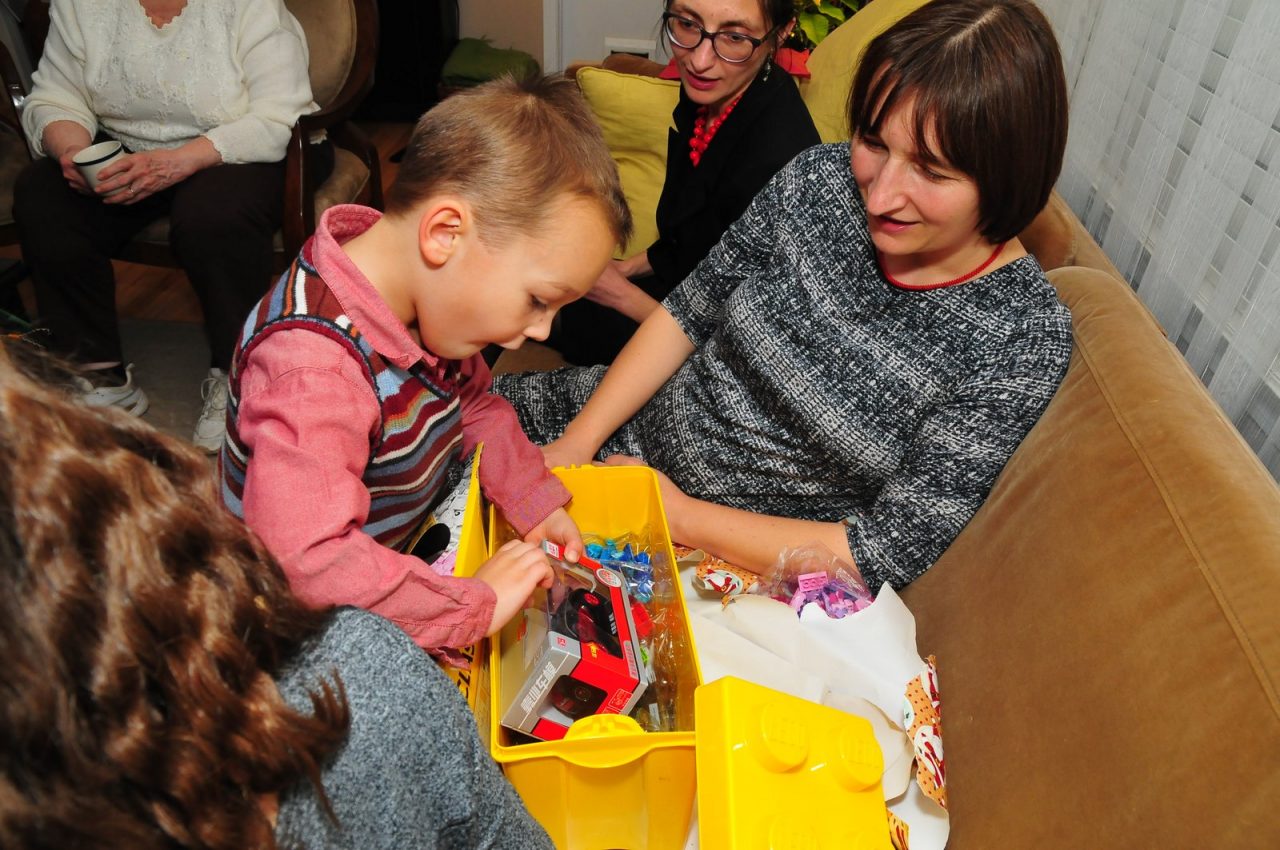
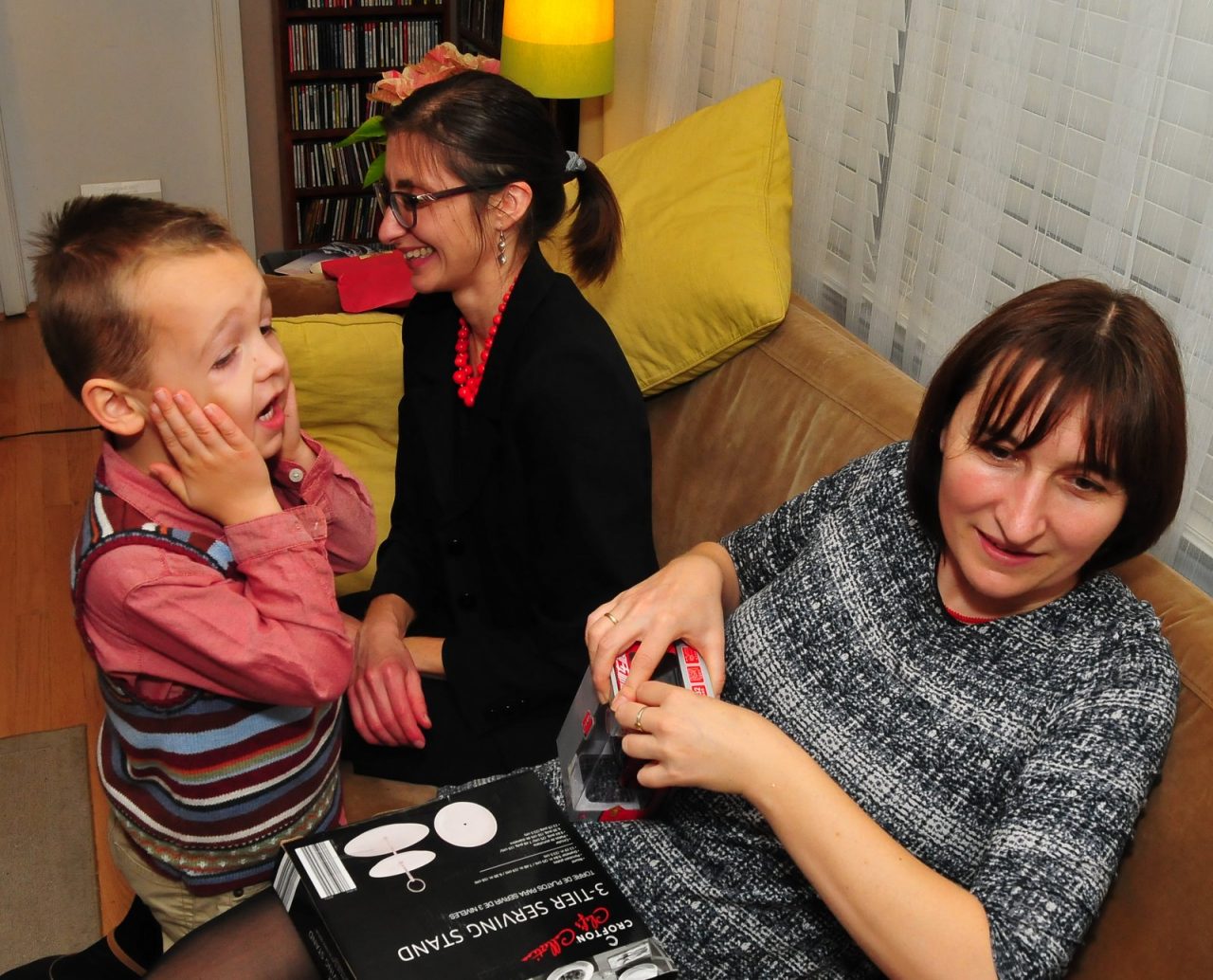
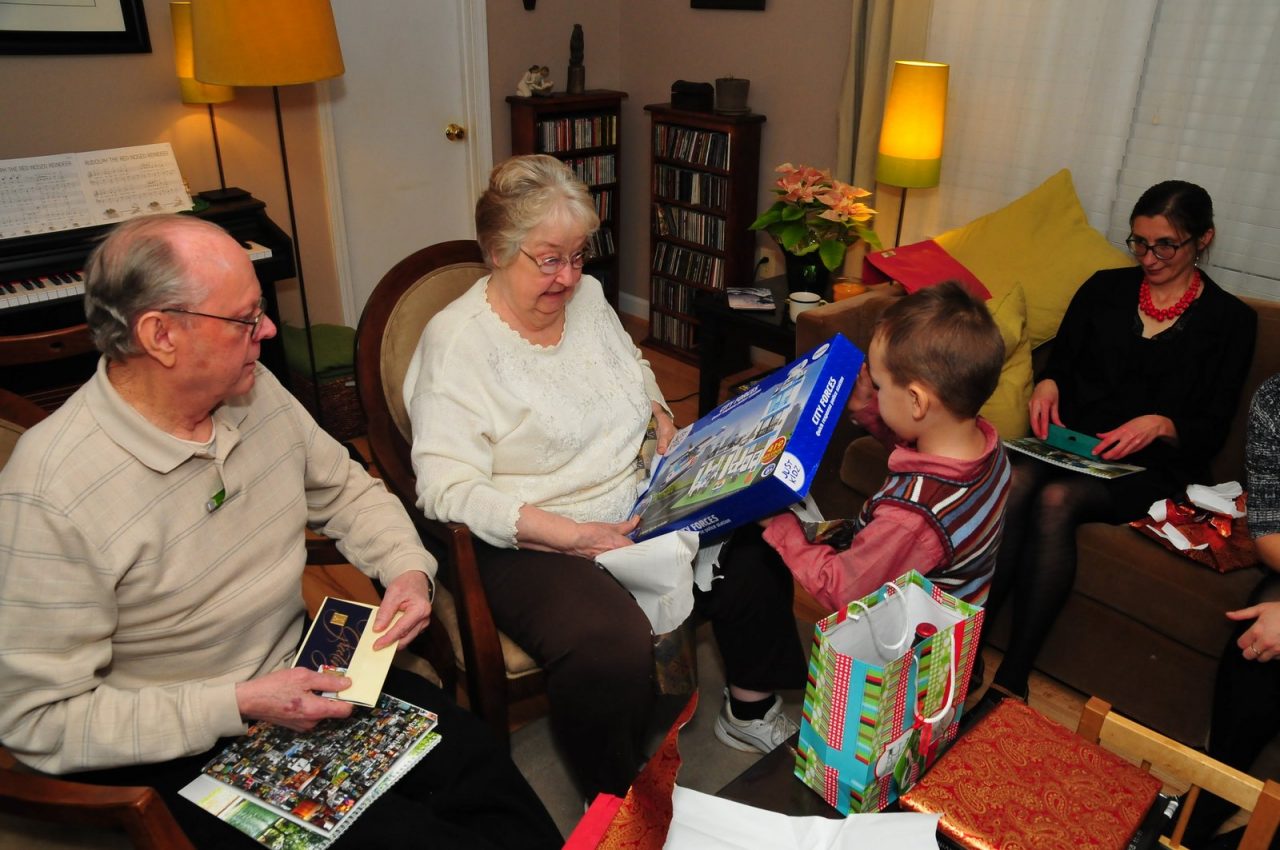
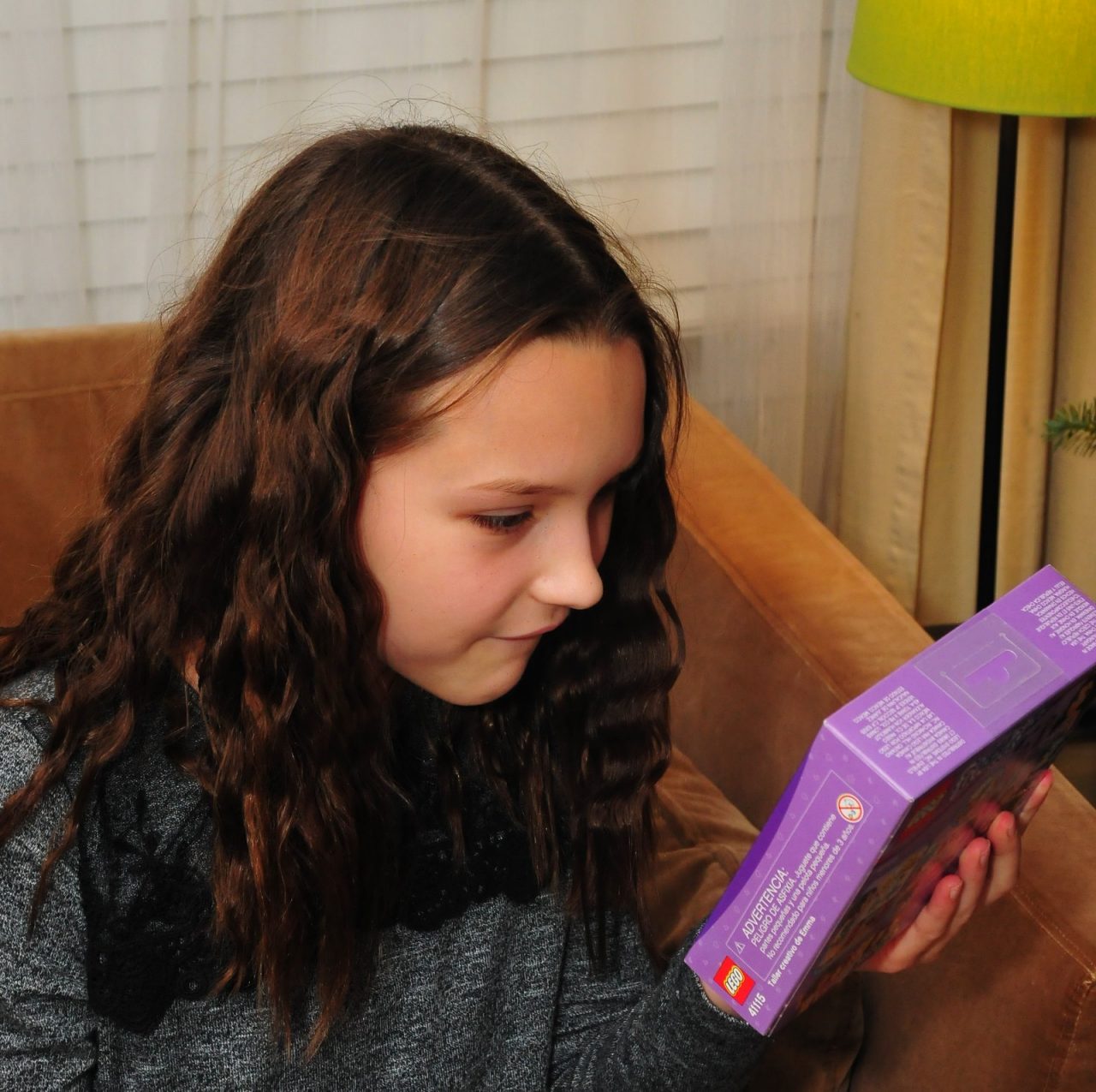
“Please Daddy, I have enough money!”
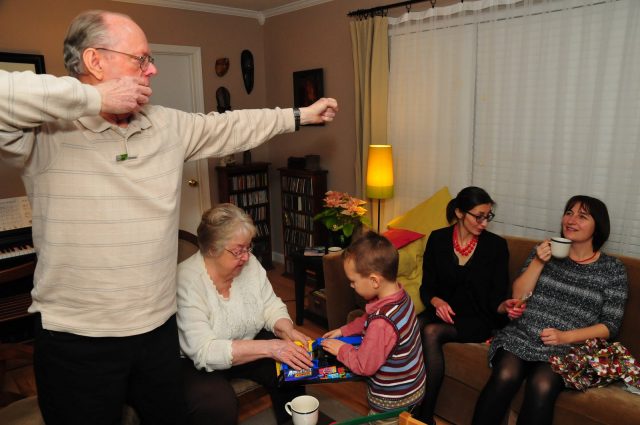
But I already knew Nana and Papa had bought a set for her, so I held my ground and played the mean Daddy. “Can we get it after Christmas?” became the mantra, to which I answered, “Nope, probably not.” Now she understands; then, she was just frustrated. Yet another thing Daddy says “No” about.
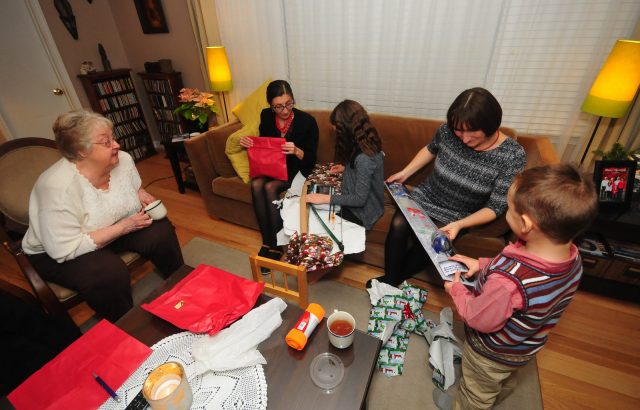
The Boy’s big prize: a fishing rod from our fishing neighbor. “Oh, I’ve been wanting one of these for years!” he exclaimed.
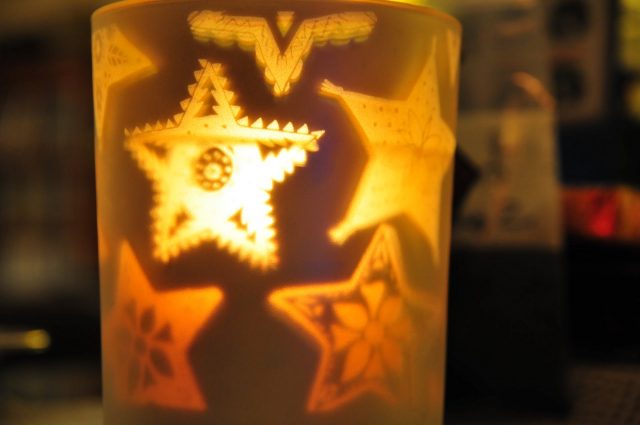
We talk and laugh, and before anyone knows it, it’s almost time for Christmas vigil Mass. Nana and Papa head home, and we pile into the car and head to our new parish.
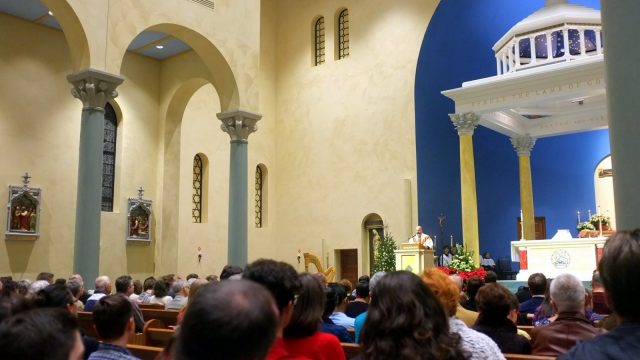
Father Longenecker’s homily focuses on the three animals that are traditionally thought to have been in the barn with Mary, Joseph, and the newborn Jesus. There’s the donkey, which seems to symbolize how we’re all so stubborn in a way. Yet it was a donkey that Christ rides into Jerusalem on Palm Sunday. There’s a continuity there.
Next, there’s the ox, which usually labors under a yoke. Three decades later, Jesus to his disciples says that “my yoke is sweet and my burden light” and invites the disciples to take up his yoke. But the early Church Fathers saw in this a parallel with taking up the cross of Christ. Just as the older ox in a pair takes the heavier load, so Christ.
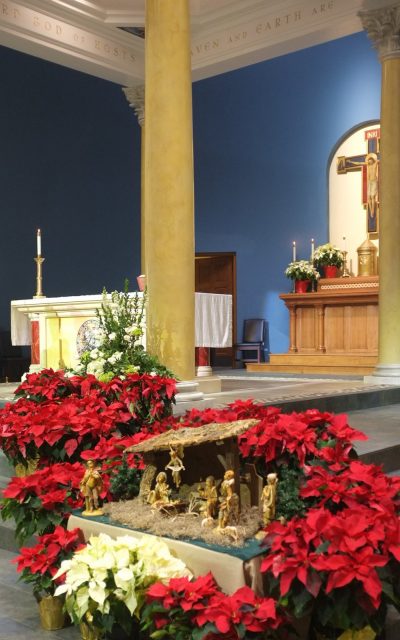
Finally, there’s the sheep. This reminds us of the fact that Jesus is both the Good Shepherd and the Agnus Dei. (Below: Penderecki’s Agnus Dei — not from tonight’s Mass.)
In closing, Father speaks of the simple crib the infant Jesus had, a manger. It’s close to “eat” in French, and therefore etymologically related to the Latin, the original language of the Church. The Church Fathers saw this as symbolic too, with the manger foreshadowing an altar and Jesus as the Eucharist.
It’s a blessing to end the evening in such a beautiful space; it’s a blessing to have a priest who gives you something to think about; it’s a blessing to have a choir that sounds like this.
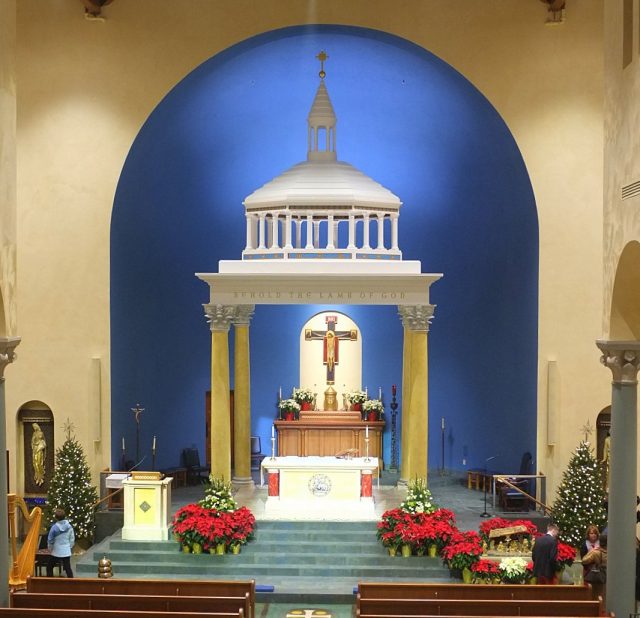
I kneel on the concrete floor, careful to put my left knee down since we don’t have a kneeler as we’re sitting in the overflow seating and I know what will happen if I put any weight on my right knee, and I think back to the beginning of the day, to my thoughts that have been bouncing around all day: what makes this Saturday any different from any other Saturday? We do. Our decision to make it different makes it different. We could abandon all tradition, we could order pizza and watch silly movies, or just go about our day as if it were any other Saturday, but we don’t. And that’s what makes it different.
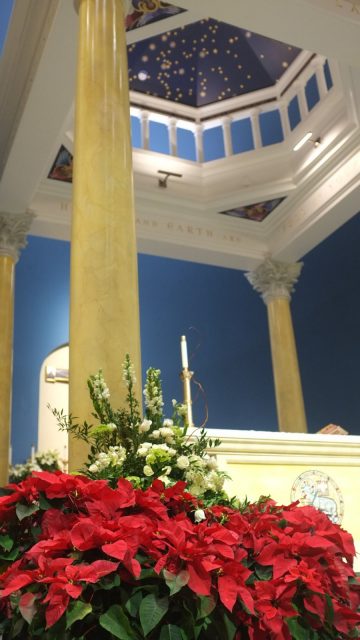
I look to my fellow parishioners and familiar thoughts swirl about: even if all of this is human-made, even if the wafer the priest holds aloft as the altar server clangs the altar bell remains just a wafer, there is value in all of this, in the singing, in the humbling (after all, isn’t that Christmas is about, the ultimate humbling?) of ourselves, the stopping one day a year and looking about us and seeing all that’s beautiful in the little spheres we orbit.
Previous Years
Wigilia 2003
Wigilia 2004
Wigilia 2005
Wigilia 2006
Wigilia 2007
Wigilia 2008
Wigilia 2009
https://matchingtracksuits.com/2010/12/25/wigilia-2010/
Wigilia 2011
Wigilia 2012
Wigilia 2013
Wigilia 2014
Wigilia 2015
0 Comments